Millions of retirees depend on Social Security checks to cover their daily expenses. But what many don’t know is that if they owe certain debts, their Social Security payments can be held back or reduced.
This news is important for seniors who rely heavily on this money every month.
Why Are Social Security Checks Being Held?
The government has rules that allow certain debts to be collected directly from Social Security benefits. This means if a retiree owes money for specific reasons, a part or all of their Social Security check might be taken to pay off that debt. This process is called “offsetting.”
The debts that can cause Social Security withholding include unpaid federal taxes, overdue student loans, and some child support or alimony payments. The law lets agencies take money from Social Security before the retiree even gets it.
Which Debts Can Lead to Social Security Withholding?
- Federal Tax Debt
If a retiree owes back taxes to the IRS and has not set up a payment plan, the IRS can take part of their Social Security benefits to cover what’s owed. This is done through the Treasury Offset Program (TOP). - Unpaid Student Loans
The Department of Education can also collect overdue student loans from Social Security checks. This applies mostly to federal student loans that have been in default. - Child Support and Alimony
State agencies can enforce child support and alimony payments by withholding Social Security benefits if a retiree is behind on payments. - Other Federal Debts
Sometimes other federal debts, like overpayments from previous benefits or fines, can also lead to deductions.
How Much Can Be Withheld?
Generally, up to 15% of a retiree’s Social Security benefits can be withheld to pay federal tax debts or student loans. For child support, up to 65% of the benefit may be taken if the retiree is not supporting a spouse or child living with them, or up to 50% if they are supporting a spouse or child.
This can make a big difference for retirees living on a fixed income. Losing part of a Social Security check can affect their ability to pay rent, buy food, or cover medical costs.
Who Is Affected the Most?
Retirees who have trouble paying debts or have not made arrangements to pay are most at risk. Many seniors are not aware that their Social Security payments can be seized.
Some may find themselves in financial trouble when they receive a smaller check than expected.
Also, individuals who have multiple debts may face multiple deductions, which can reduce their total income significantly.
What Can Retirees Do to Protect Their Benefits?

- Stay Informed
Retirees need to understand which debts can affect their Social Security benefits. Knowing this helps them take action early. - Communicate with Agencies
If you owe money, contact the agency involved to discuss payment plans or settlements. For example, the IRS offers payment plans to avoid seizure. - Seek Financial Advice
There are non-profit organizations and financial advisors that specialize in helping seniors manage debts and protect their benefits. - Check Your Social Security Statement
Regularly review your Social Security statements and any notices from the Social Security Administration (SSA) to catch any deductions or issues.
How to Check If Your Social Security Is Being Withheld
The Social Security Administration sends a notice if your benefits will be reduced or withheld due to debt. Retirees can also contact SSA directly or check their online account for information on any deductions.
It’s a good practice to monitor your bank statements carefully and understand any changes in deposit amounts.
Recent Trends and Government Actions
In recent years, the government has increased efforts to collect overdue debts by withholding Social Security benefits. This helps the government recover unpaid money, but creates challenges for retirees who depend on these funds.
Some advocacy groups argue that these deductions are too harsh on seniors, especially those with limited incomes. There are ongoing discussions about balancing debt collection and protecting vulnerable retirees.
What Happens If Your Benefits Are Fully Withheld?
If the debt is large enough, it’s possible that the entire Social Security check could be withheld until the debt is paid off or arranged. This can cause serious financial hardship.
If you face this situation, it’s critical to seek legal or financial advice immediately. There may be options to reduce the amount withheld or set up manageable payments.
Important Resources for Retirees
- Social Security Administration (SSA): ssa.gov
Official site for benefit information and account management. - Internal Revenue Service (IRS): irs.gov
For federal tax debts and payment plans. - Department of Education: studentaid.gov
For student loan information and repayment options. - State Child Support Agencies: Contact your state’s child support enforcement office for help with payments.
- National Council on Aging (NCOA): ncoa.org
Provides resources and advice on managing finances and debt.
Conclusion
Retirees need to be aware that owing certain debts can lead to Social Security benefits being withheld. This can affect their monthly income and overall financial stability. Staying informed, communicating with agencies, and seeking advice are the best ways to protect Social Security payments and maintain a stable retirement.
If you or someone you know is a retiree receiving Social Security, make sure to check for any debts and take steps early to avoid surprises in your benefit payments.




